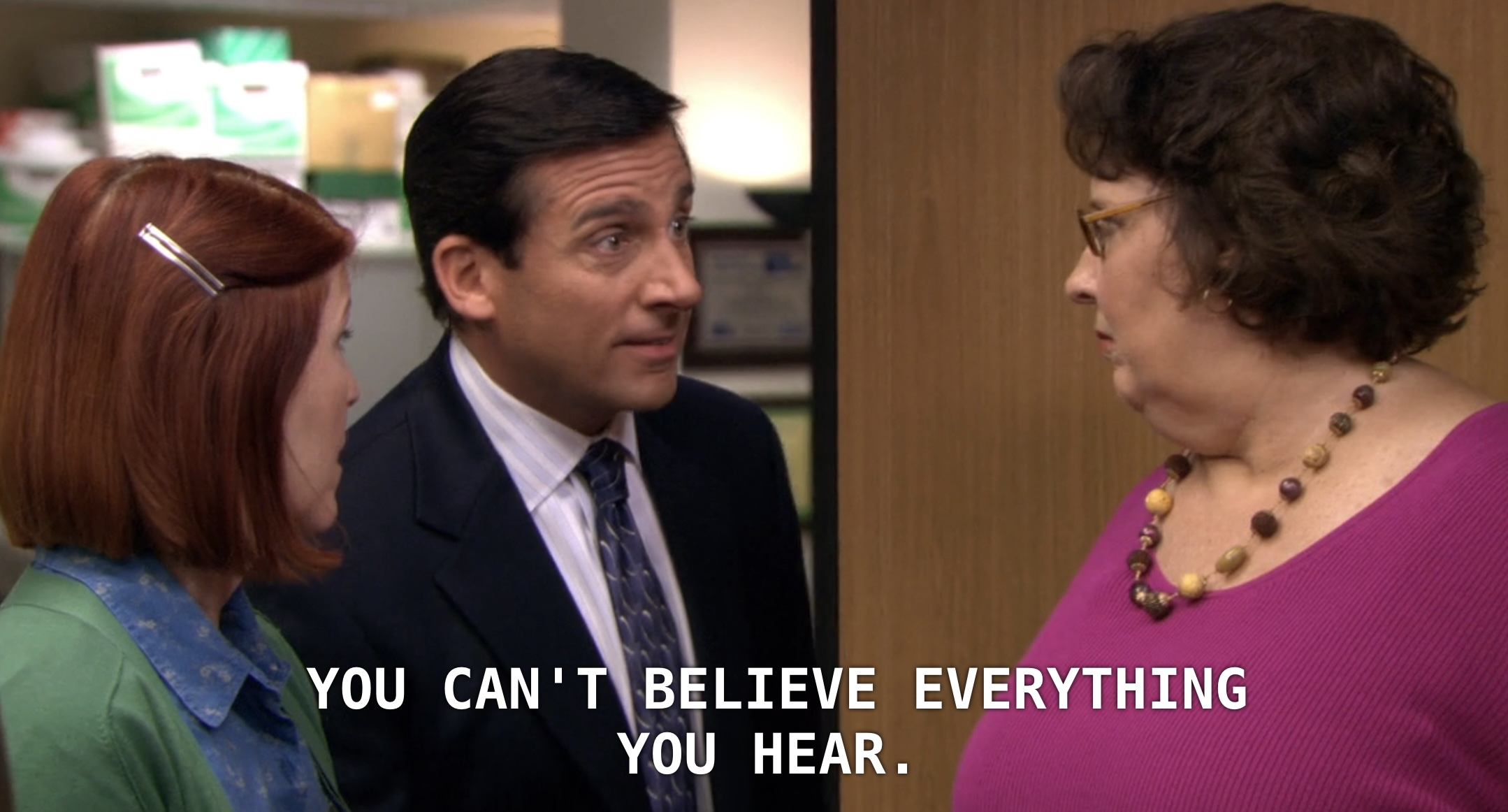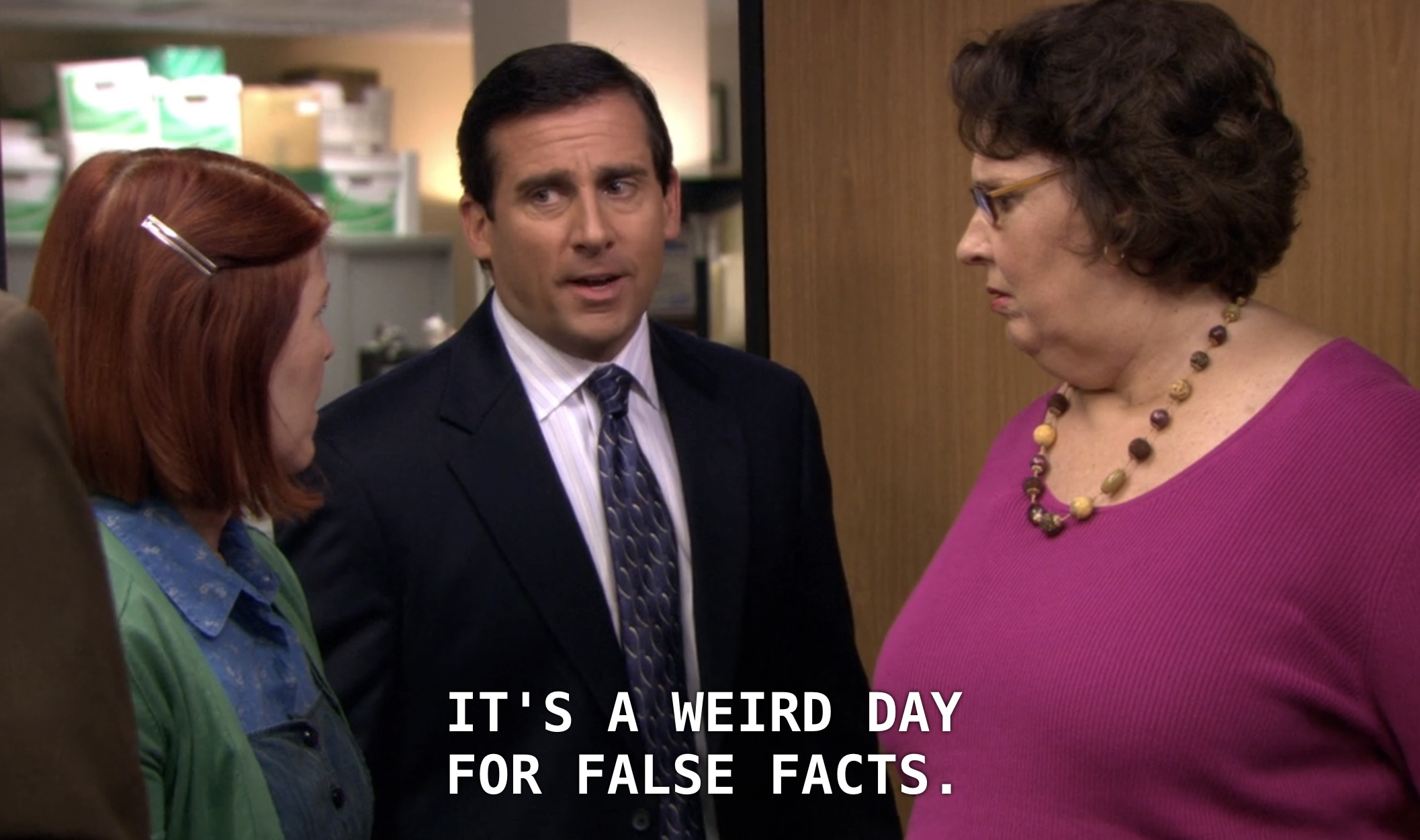In the episode one of the sixth season of the series The Office, Michael spreads a rumour about one of his colleagues, Stanley, having an affair. Incidentally, the rumour happens to be true. Feeling bad about ruining his friend's life, Michael comes up with a plan to save the situation.
"How do you untell something? You can't. You can't pur words back in your mouth. What you can do is spread false gossip so that people think that everything that's been said is untrue, including Stanley is haing an affair."
In order to do damage control, Michael's solution is to tell all sorts of gossips about the people in the office, hoping to drown the one true rumour in a sea of confusion: Kelly has an eating disorder; Erin is a bad worker; Andy is gay; Pam is pregnant; there's another person inside Kevin, working him with controls.

What do you do about an unwanted piece of information after it's already out in the public? You can't hide it, as information spreads too quickly and too easily, and you can't control who've already seen it. What you can do, is flood the information sphere with as much information (both right, wrong and - the best of all! - somehwat true but mostly wrong) as possible. The desired effect is one, in which nobody can know anything for certain anymore, so everybody doubt everything and give up believing anything.

Michael's strategy eventually backfires: the coworkers trace one of the rumours back to it's source, forcing Michael to confess. The reality however proves more complex and difficult. Michael is a lone agent and the information can be directly fact-checked within the walls of an office. In the informational trenches of the real life, the agents of confusion are many and powerful, backed by nation-states and plentiful resources. Worse yet, the information chains are too complex for our brittle attention spans to prove or disprove every piece of information we encounter. It is an unfair battle that we fight each day as individuals and as societies.
But the man-made false information is just the tip of the iceberg in a world, where the artificial intelligence and computational resourrce are increasingly being employed to produce information (with both hostile and neutral intentions). At the end of 2023, we truly are at the brink of a post-truth reality, an epistemic hell (or a postmodern heaven), where everything is subject to interpretation and nothing is certain. In many cases, what stands between the latest ChatGPT-hallucinations or the newest conspiracy theory your uncle reposted on Facebook, is a couple of Wikipedia pages moderated by some valiant contributors in their free time. And the stakes could not have been higher: what's at play is the very consensus reality, the base upon which our civilisation rests. If we can't agree on the most basic facts about the present and the past, then there is no well-aligned future we could be moving towards.
So what can we do?
The first thing to do, is to acknowledge the lasting state of confusion in which we find ourselves.
Then, as a response, is to assume a rational epistemic model for understanding the world. This could mean thinking in probabilities instead of falisities and truths. This is hard work, as it requires us to constantly update our models of the world as we encounter new bits of information.
Furtermore, we need trusted authorities to turn towards to for legitimate information. We also need to assume, that these authorities will inevitably become the forefront of the informational wars, in which all parties will try to overtake them to impose their own versions of the world. Thus, these authorities need to be protected and safeguarded against current and future risks (from both within and without).
Finally, we should promote and finance fact-checking organisations, investigative journalists and open-source intelligence initiatives (such as Bellingcat), as well as new branches of science that try to untwine this mess (such as agnotology, or "the study of deliberate, culturally induced ignorance or doubt, typically to sell a product, influence opinion, or win favour, particularly through the publication of inaccurate or misleading" information).
So the next time you find yourself not knowing what to believe anymore, consider who might be benefiting from your confusion.
